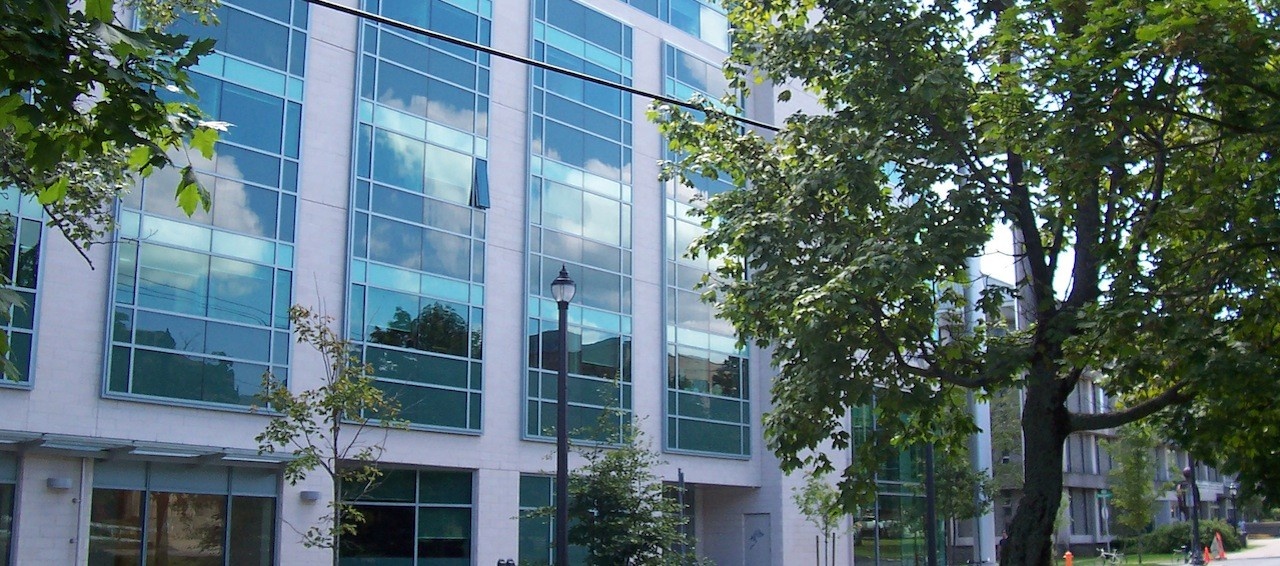Samantha Chu
 Ěý Ěý |
SRES program:MES Educational background:Bachelor of Management in Sustainability from »ĆÉ«Ö±˛Ą |
Samantha Chu and Forestry Knowledge Exchange
Samantha (Sam) M. Chu, a Master of Environmental Studies (MES) student at »ĆÉ«Ö±˛Ą's School for Resource and Environmental Studies (SRES), exemplifies the power of research and education in addressing complex environmental issues. Her academic journey and research endeavours highlight the significance of interdisciplinary approaches and the nurturing academic environment at SRES. Sam's experiences offer valuable insights into the role of dedicated mentorship, community support, and the importance of addressing social dimensions within environmental research.
Sam’s decision to pursue her master's at SRES was influenced by her undergraduate supervisor, Dr. Alana Westwood. Their established rapport and Alana's mentorship during Sam's honours thesis played a crucial role in her academic trajectory. The continuity of this mentorship into her graduate studies provided Sam with a solid foundation to explore her research interests further. This underscores the importance of having a supportive and knowledgeable supervisor, which can significantly impact a student's academic and professional development.
Sam’s honours thesis delved into the concept of interference in environmental studies and sciences. She explored how different social identities experience various levels of interference in conducting and disseminating their research. In this context, interference was broadly defined as deliberate actions that result in both the reduced funding or capacity for research activities and (or) the inability of scientists to communicate their results or engage in effective knowledge transfer. Her findings revealed that marginalized groups often face greater interference than majority groups. Sam’s early taste of research sheds light on the systemic challenges diverse researchers face in the environmental field, emphasizing the need for inclusive and equitable research practices.
These days, as an MES student, Sam’s research at SRES focuses on the intersection of forestry and knowledge dissemination. Her research aims to enhance Canadian forest management by improving knowledge exchange practices and bridging the communication gap between forest practitioners and scientists. She specifically investigates how foresters prefer to engage in knowledge exchange and receive information, helping forest scientists disseminate their research in a way that is most useable and effective for foresters. This is becoming an increasingly important area of study as forests and forest industries are changing due to environmental and social pressures facing traditional forestry practices. Her thesis is an intensely collaborative effort as she works closely with every provincial forestry association in Canada.
One of the standout features of Sam’s experience at SRES is the strong sense of community. She describes the environment as welcoming and supportive, with professors and peers who are approachable and willing to assist. This communal atmosphere fosters collaboration and mutual support, which is essential for tackling environmental studies' multifaceted challenges. Sam highlights the importance of having a dedicated space for students to gather, study, and collaborate, which enhances the overall learning experience.
As Sam says, another significant strength of SRES is its “interdisciplinary nature.” The faculty's diverse academic backgrounds and research expertise enable students to approach environmental issues from multiple perspectives. For example, while her supervisor specializes in quantitative environmental research, Sam also collaborates with faculty who are experts in qualitative research. This blend of methodologies enriches her research, allowing for a more comprehensive understanding of the issues at hand.
Sam views SRES as playing a critical role in addressing global environmental challenges. The school's faculty members are actively involved in national and international committees, contributing their expertise to policy development and global initiatives. This engagement ensures that the research conducted at SRES has a broader impact beyond academia, influencing real-world environmental policies and practices.
Moreover, she believes that the diverse student body at SRES, hailing from different regions across Canada and the world, helps to build a network of connections that can be leveraged for collaborative efforts in environmental sustainability. Sam believes that the solutions to complex issues like climate change will come from a multitude of small, interconnected solutions rather than a single, overarching fix. “There's not going to be one silver bullet that solves climate change,” said Sam, “solutions will need to come from all levels of society —from the choices that consumers make at the grocery store to sweeping federal legislation—and I believe researchers are playing an important role in all components.” With its interdisciplinary approaches and extensive networks, SRES is well-positioned to contribute to these multifaceted solutions.
Sam's journey through SRES underscores the importance of supportive mentorship, a strong academic community, and interdisciplinary research in the field of environmental studies. Her work on forestry and knowledge exchange contributes to academic knowledge and aims to improve forest management across Canada. Sam’s experiences reflect the broader mission of SRES: to equip students with the skills and knowledge needed to address the pressing environmental issues of our time. As she continues her research, Sam remains committed to fostering sustainable practices and advocating for inclusive research methodologies. Her journey is a testament to the transformative power of education and research in making a meaningful impact on environmental sustainability and social equity. Sam exemplifies how SRES and its community are at the forefront of shaping a sustainable future through her work.
To read more about Sam’s work, check out her recent paper:
